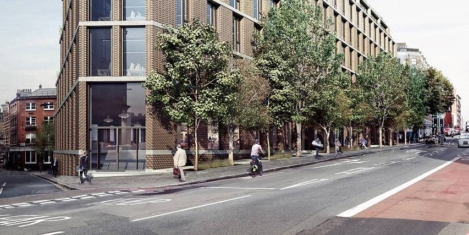To provide the best experiences, we use technologies like cookies to store and/or access device information. Consenting to these technologies will allow us to process data such as browsing behaviour or unique IDs on this site. Not consenting or withdrawing consent, may adversely affect certain features and functions.
The technical storage or access is strictly necessary for the legitimate purpose of enabling the use of a specific service explicitly requested by the subscriber or user, or for the sole purpose of carrying out the transmission of a communication over an electronic communications network.
The technical storage or access is necessary for the legitimate purpose of storing preferences that are not requested by the subscriber or user.
The technical storage or access that is used exclusively for statistical purposes.
The technical storage or access that is used exclusively for anonymous statistical purposes. Without a subpoena, voluntary compliance on the part of your Internet Service Provider, or additional records from a third party, information stored or retrieved for this purpose alone cannot usually be used to identify you.
The technical storage or access is required to create user profiles to send advertising, or to track the user on a website or across several websites for similar marketing purposes.
 New research by 247meeting claims to have uncovered worrying lapses in data security in the workplace, with senior management often being the biggest culprits. According to the report: a quarter of senior managers have experienced a stranger on a conference call; 26 percent of employees with access to customer data haven’t been trained on GDPR; over a third of employees don’t know where their security policy is saved; and almost half of employees admit to using technology tools to communicate at work without them being password protected
New research by 247meeting claims to have uncovered worrying lapses in data security in the workplace, with senior management often being the biggest culprits. According to the report: a quarter of senior managers have experienced a stranger on a conference call; 26 percent of employees with access to customer data haven’t been trained on GDPR; over a third of employees don’t know where their security policy is saved; and almost half of employees admit to using technology tools to communicate at work without them being password protected










 Local authorities, which are on the front line of implementation when it comes to smart, place-based digital initiatives could be helped to deliver positive, sustainable citizen outcomes for their locality with the formation of a Digital Board – a new report claims. Launched at techUK’s
Local authorities, which are on the front line of implementation when it comes to smart, place-based digital initiatives could be helped to deliver positive, sustainable citizen outcomes for their locality with the formation of a Digital Board – a new report claims. Launched at techUK’s 























